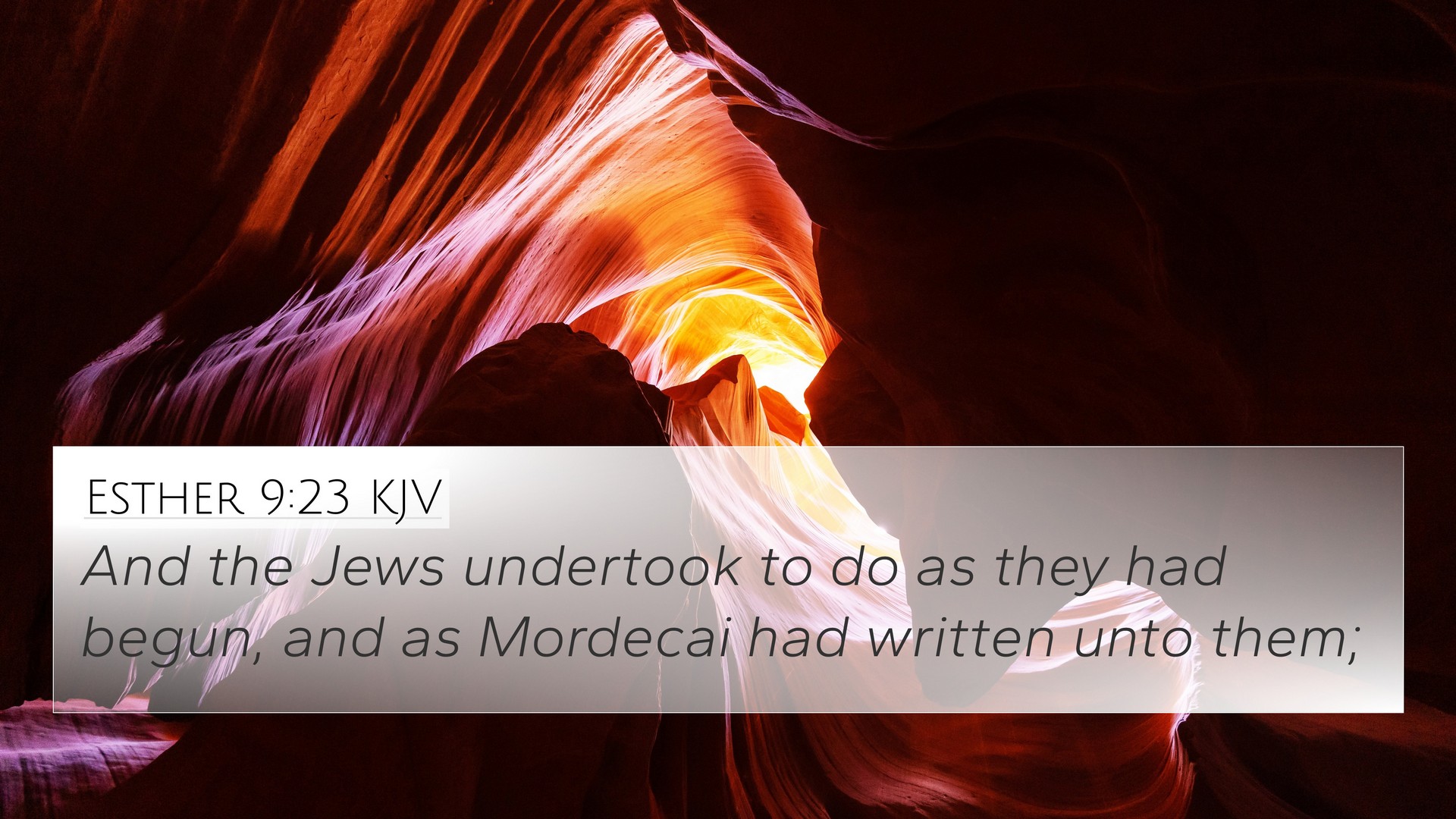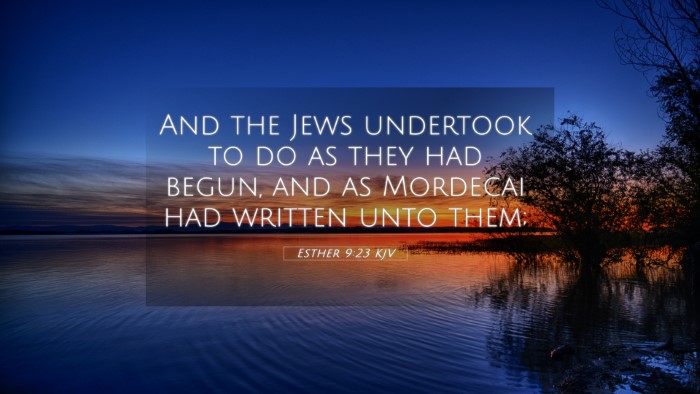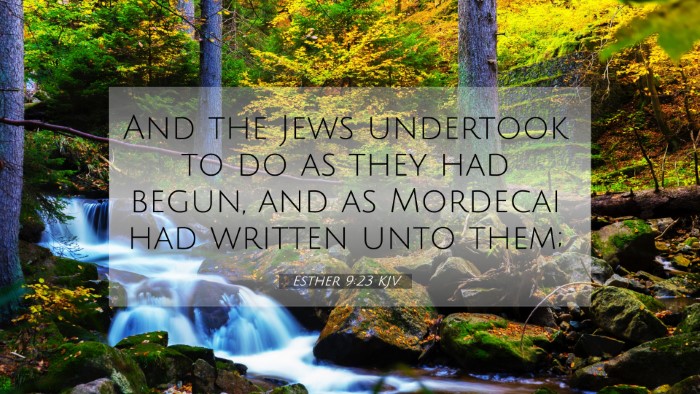Understanding Esther 9:23
Esther 9:23 states, "And the Jews undertook to do as they had begun, and as Mordecai had written unto them;" This verse encapsulates the essence of obedience and the continuity of the Jewish people's commitment to their newfound celebration of Purim, which commemorates their deliverance from Haman's decree of extermination.
Meaning and Interpretation
The significance of Esther 9:23 can be better understood through insights provided by renowned public domain commentaries, including those of Matthew Henry, Albert Barnes, and Adam Clarke. This verse highlights the unity among the Jewish people and their determined response to the events surrounding their deliverance.
Matthew Henry emphasizes that the Jews' decision to carry out what Mordecai had written reflects their gratitude and acknowledgment of God's providence. The verse signifies a collective resolve and commitment to remember and celebrate their salvation, reinforcing their identity and heritage.
Albert Barnes notes that this verse shows the continuation of the tradition established by Mordecai and Esther. Their leadership inspired the Jews to adhere to these commemorations, enhancing their community's social and religious fabric. This passage encourages believers to uphold traditions and teachings that signify divine intervention and support.
Adam Clarke discusses the historical context, underscoring the importance of remembering one's deliverance from adversity. He points out that this instruction serves as a reminder of God’s deliverance and the significance of commemorating divine interventions, fostering a deeper faith within the community.
Relevant Bible Cross-References
To fully appreciate the implications of Esther 9:23, one can look at several Bible verse cross-references that relate similarly to themes of deliverance and community commitment:
- Exodus 12:14 - Celebrating Passover as a reminder of deliverance from Egypt.
- Deuteronomy 16:3 - The command to remember slavery and celebrate freedom.
- Psalms 78:4 - Telling the next generation about God's deeds.
- Isaiah 51:6 - God’s everlasting salvation and power as a foundation for faith.
- Ephesians 2:11-13 - Remembering the past to understand the grace received through Christ.
- Philippians 4:6-7 - Encouragement for prayer and remembrance of God's peace amidst troubles.
- Hebrews 10:24-25 - The necessity of assembling and encouraging one another in faith.
Thematic Connections
The connections between Bible verses provide a rich tapestry of themes that can help deepen one’s understanding of Scripture. Through cross-referencing biblical texts, themes such as deliverance, community memory, and religious observance come to light.
This verse connects with Psalms 100:4 where the call for thanksgiving and praise is echoed, suggesting an integral part of the tradition established through Esther and Mordecai's influence.
Additionally, Galatians 5:13 highlights the communal aspect of faith—serving one another in love, which resonates with the unity portrayed in Esther 9:23.
Tools for Bible Cross-Referencing
Utilizing a variety of tools for Bible cross-referencing can significantly enhance your study. Resources such as a Bible concordance, Bible cross-reference guide, and comprehensive Bible cross-reference materials facilitate the exploration of thematic connections throughout the Bible.
Engaging in cross-reference Bible study methods allows for a detailed examination of how different scriptures interact and support one another, which is essential in understanding complex narratives and teachings in passages like Esther 9:23.
Conclusion
Esther 9:23 not only reflects the joy and thankfulness of the Jewish people but also prompts believers to engage with their spiritual heritage. The thematic Bible verse connections with other scriptures reinforce the importance of remembrance in the lives of faith communities. The cross-referencing of biblical texts reveals the intricate ways God's promises and actions resonate throughout Scripture, offering a profound foundation for reflective worship and practice.


